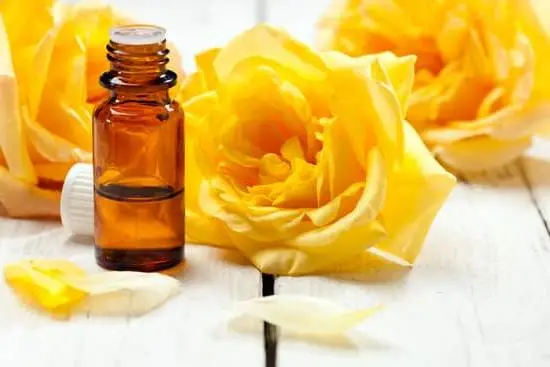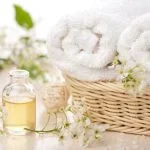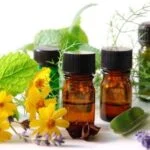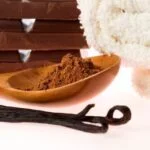Can aromatherapy treat depression? Aromatherapy is a holistic healing treatment that uses natural plant extracts to promote health and well-being. In this article, we will explore the effectiveness of aromatherapy in treating depression and its potential benefits for mental health.
Aromatherapy is the practice of using essential oils and aromatic plant compounds to enhance physical and psychological well-being. The use of these oils can be inhaled, applied to the skin, or ingested, depending on the desired effect. The scents from these oils are believed to stimulate brain function and promote relaxation, which may help alleviate symptoms of depression.
The connection between aromatherapy and depression is gaining attention in the field of mental health. Many studies have shown that certain essential oils have mood-boosting properties that can help reduce stress, anxiety, and feelings of sadness. In the following sections, we will explore the science behind aromatherapy and its potential effectiveness in treating depression, as well as practical tips for using aromatherapy to improve mental health.
The Science Behind Aromatherapy and Depression
Aromatherapy has been used for centuries as a natural remedy for various physical and mental health conditions. It involves using essential oils derived from plants to promote relaxation, improve mood, and alleviate symptoms of stress and anxiety. But can aromatherapy treat depression? Understanding the science behind aromatherapy and its connection to depression is crucial in exploring the potential benefits of this alternative therapy.
Research suggests that certain essential oils used in aromatherapy can have a positive impact on mood and emotions, making them a potential adjunct treatment for depression. The olfactory system, which is responsible for our sense of smell, plays a key role in how aromatherapy affects the brain.
When we inhale essential oils, they travel through the nasal cavity to reach the limbic system, which is involved in regulating emotions and memory. This direct pathway can influence neurotransmitter activity and hormonal balance, leading to changes in mood and behavior.
Studies have shown that specific essential oils commonly used in aromatherapy, such as lavender, bergamot, and chamomile, have demonstrated anxiolytic (anxiety-reducing) and antidepressant effects. For example, lavender oil has been found to increase levels of serotonin, a neurotransmitter associated with mood regulation, while also reducing levels of cortisol, a stress hormone.
Similarly, bergamot oil has been shown to have calming properties that can help alleviate symptoms of depression and anxiety. By understanding the biochemical mechanisms at play, we can better appreciate how aromatherapy may be effective in treating depression.
| Essential Oil | Effects on Depression |
|---|---|
| Lavender | Increases serotonin levels; reduces cortisol levels |
| Bergamot | Calming properties; alleviates symptoms of depression and anxiety |
Aromatherapy Essential Oils for Depression
Aromatherapy essential oils have been used for centuries to alleviate symptoms of various mental health conditions, including depression. These essential oils are derived from plants and contain powerful aromatic compounds that can positively impact mood and emotions. When it comes to treating depression with aromatherapy, it is important to select the most effective essential oils for this purpose.
Lavender Oil
Lavender oil is one of the most popular and widely studied essential oils for depression. Research has shown that the scent of lavender can help reduce anxiety and improve sleep quality, both of which are common symptoms of depression. Its calming and soothing properties make it a favorite choice for individuals seeking relief from depressive symptoms.
Citrus Oils
Citrus essential oils, such as bergamot, orange, and lemon, are known for their uplifting and energizing effects. They can help combat feelings of lethargy, fatigue, and low energy often associated with depression. The bright and refreshing scent of citrus oils can also promote a positive outlook and reduce stress levels.
Frankincense Oil
Frankincense oil has been traditionally used in aromatherapy to promote relaxation and support emotional well-being. It has a warm, earthy aroma that can create a sense of grounding and stability, making it beneficial for individuals experiencing emotional imbalance or mood swings due to depression.
When using aromatherapy essential oils for depression, it is important to choose high-quality therapeutic-grade oils from reputable sources. Experimenting with different blends or single oils under the guidance of a qualified aromatherapist
How to Use Aromatherapy for Depression
Aromatherapy is a popular complementary therapy that can be used to help manage symptoms of depression. Utilizing essential oils extracted from plants, aromatherapy is believed to promote overall well-being and relaxation through the stimulation of the olfactory system. Here are some practical tips and techniques for using aromatherapy to alleviate symptoms of depression:
1. Inhalation: One of the most common methods for using aromatherapy is through inhalation. This can be done by adding a few drops of essential oil to a diffuser or inhaling directly from the bottle. Popular essential oils for depression include lavender, bergamot, and chamomile.
2. Topical Application: Another method is through topical application, which involves diluting essential oils with a carrier oil and applying it to the skin. This can be done through massage or by adding a few drops to a bath. It’s important to do a patch test before applying any essential oil topically to ensure there are no allergic reactions.
3. Aromatherapy Jewelry: A convenient way to enjoy the benefits of aromatherapy throughout the day is by using aromatherapy jewelry such as necklaces or bracelets designed to hold essential oils. This allows for continuous inhalation of the scent wherever you go.
When using aromatherapy for depression, it’s important to start with small amounts and monitor your body’s reaction. Additionally, it’s recommended to seek guidance from a qualified aromatherapist or mental health professional who can provide personalized recommendations based on individual needs and preferences.
Overall, incorporating aromatherapy into your daily routine can help ease symptoms of depression and contribute to an improved sense of well-being when used in conjunction with other treatment methods such as therapy or medication.
Aromatherapy vs Traditional Treatments for Depression
When it comes to treating depression, there are various options available, including traditional treatments such as therapy and medication. However, many people are turning to alternative methods, such as aromatherapy, to help alleviate symptoms of depression. In this section, we will explore the differences between aromatherapy and traditional treatments for depression, offering a comparative analysis of the two approaches.
Traditional treatments for depression often involve therapy sessions with a licensed professional, such as a psychologist or psychiatrist. These sessions may include talk therapy, cognitive-behavioral therapy (CBT), or other evidence-based therapeutic techniques. In addition to therapy, medication is commonly prescribed for individuals with depression. Antidepressants can help regulate brain chemistry and alleviate symptoms of depression.
On the other hand, aromatherapy involves the use of essential oils to promote health and well-being. Aromatherapists believe that specific scents from essential oils can have a direct impact on the limbic system, which is responsible for emotions and mood regulation in the brain. By inhaling or applying these oils topically, individuals can experience psychological and physiological effects that may help in managing symptoms of depression.
While traditional treatments for depression focus on addressing underlying psychological and medical factors through therapy and medication, aromatherapy takes a holistic approach by targeting emotional well-being through the use of natural essential oils. It’s important to note that both approaches can be complementary and may work differently for each individual. Consequently discussing with your healthcare provider before incorporating aromatherapy into your treatment plan is vital.
As research continues to explore the potential benefits of aromatherapy for mental health conditions like depression each approach offers its own set of advantages and considerations that should be carefully evaluated based on an individual’s needs and preferences.
The Benefits of Aromatherapy for Mental Health
Aromatherapy has been gaining popularity as a complementary treatment for mental health conditions, including depression. Many individuals have reported positive experiences with using aromatherapy to alleviate symptoms of depression and improve their overall well-being. Real-life success stories serve as powerful testimonials to the potential benefits of aromatherapy in managing mental health challenges.
Personal Experiences
Numerous individuals have shared their personal experiences with using aromatherapy to cope with depression. For some, the soothing scents of essential oils have provided a sense of comfort and relaxation during difficult times. Others have found that certain aromas can help uplift their mood and provide a much-needed mental boost. These real-life success stories highlight the significant impact that aromatherapy can have on one’s mental health and emotional well-being.
Improved Quality of Life
Many people who have incorporated aromatherapy into their daily self-care routines have reported an overall improvement in their quality of life. By utilizing essential oils in diffusers, baths, or massage oils, individuals can create a calming and supportive environment for themselves, which can contribute to reducing feelings of anxiety and sadness associated with depression. These success stories demonstrate the potential for aromatherapy to enhance mental health and promote emotional balance.
Reduced Reliance on Medications
Some individuals have shared how incorporating aromatherapy into their treatment plan for depression has allowed them to reduce their reliance on prescription medications or other traditional treatments. While it’s important to note that individual responses can vary, these success stories shed light on the potential for aromatherapy to offer an alternative or additional approach to managing depressive symptoms.
This underscores the value of exploring holistic and natural alternatives in conjunction with professional medical guidance for those living with depression.
Safety Concerns and Risks
Aromatherapy has gained popularity as a holistic approach to treating various mental health conditions, including depression. However, it is essential to understand the safety concerns and risks associated with this alternative therapy before using it as a treatment for depression.
One of the most significant concerns regarding aromatherapy for depression is the potential for allergic reactions to essential oils. Some individuals may be sensitive to certain oils and may experience skin irritation or respiratory issues when exposed to them. It is crucial to perform a patch test before using any new essential oil and dilute them properly to reduce the risk of adverse reactions.
Another important consideration is the potential interactions between essential oils and medications used to treat depression. Some essential oils can interfere with the effectiveness of certain antidepressant medications or cause unexpected side effects when used in combination. Therefore, it is crucial for individuals undergoing treatment for depression to consult with a healthcare professional before integrating aromatherapy into their wellness routine.
Furthermore, misuse or overuse of essential oils in aromatherapy can lead to toxicity and other health complications. Essential oils are highly concentrated substances that should be used sparingly and following recommended guidelines. Ingesting essential oils or applying them directly to the skin without proper dilution can result in adverse effects such as nausea, dizziness, and skin irritation.
| Concerns | Risks |
|---|---|
| Allergic reactions | Skin irritation or respiratory issues |
| Interactions with medications | Interfere with effectiveness of antidepressant medications or cause unexpected side effects |
| Misuse or overuse of essential oils | Toxicity and health complications such as nausea, dizziness, and skin irritation |
Consultation With a Professional
In conclusion, the use of aromatherapy as a treatment for depression continues to be a topic of interest and study. While some individuals may find relief from symptoms through the use of essential oils, it is important to approach this alternative therapy with caution and knowledge. Consulting with a professional, such as a qualified aromatherapist or mental health provider, can provide valuable guidance and ensure the safe and effective use of aromatherapy for depression.
Aromatherapy, when used in conjunction with traditional treatments for depression, has the potential to offer additional support and emotional wellness benefits. However, it is crucial to understand that aromatherapy should not replace prescribed medications or therapy for those diagnosed with clinical depression. Aromatherapy can complement these treatments by providing relaxation, stress reduction, and an overall sense of well-being.
Ultimately, the decision to use aromatherapy for depression should be made in consultation with a healthcare professional who understands both traditional and alternative approaches to mental health care. By seeking expert advice, individuals can make informed decisions about whether aromatherapy is a suitable option for their specific needs while ensuring their safety and well-being.
The potential benefits of aromatherapy should be weighed against any potential risks or contraindications, making expert guidance an invaluable resource for anyone considering this alternative treatment option.
Frequently Asked Questions
What Helps People Cope With Depression?
People cope with depression through various methods such as therapy, medication, regular exercise, a balanced diet, and social support. Engaging in activities they enjoy and practicing mindfulness can also be beneficial.
How Can Aromatherapy Help With Mental Health?
Aromatherapy can help with mental health by using essential oils to promote relaxation, reduce stress and anxiety, improve sleep quality, and boost mood. The scent of certain oils can have a calming effect on the mind and body.
What Illness Does Aromatherapy Treat?
Aromatherapy is not intended to treat specific illnesses, but it is often used as a complementary therapy for conditions like anxiety, depression, insomnia, headaches, and stress-related disorders. It’s important to consult a healthcare professional for any serious medical concerns.

Are you looking for a natural way to improve your health and wellbeing?
If so, aromatherapy may be the answer for you.





